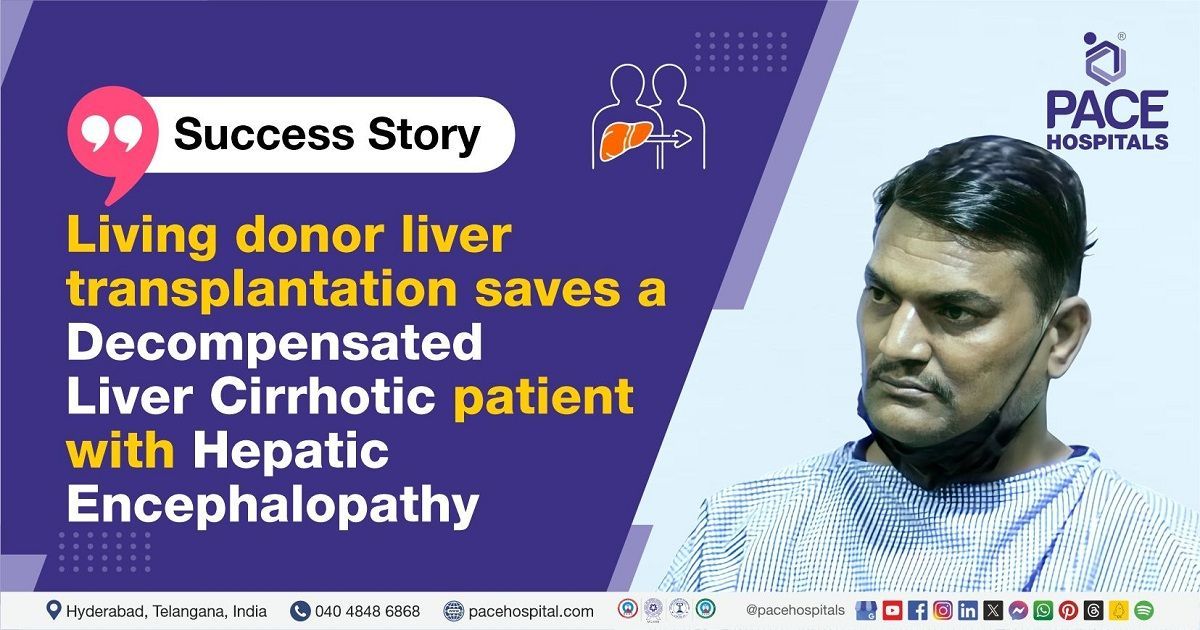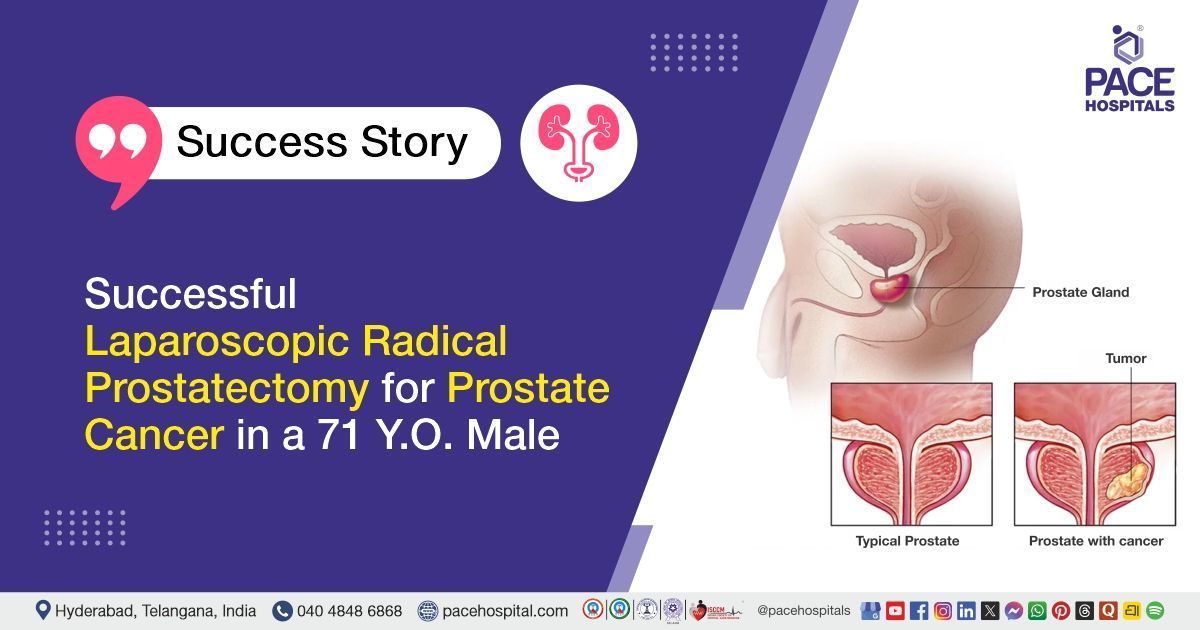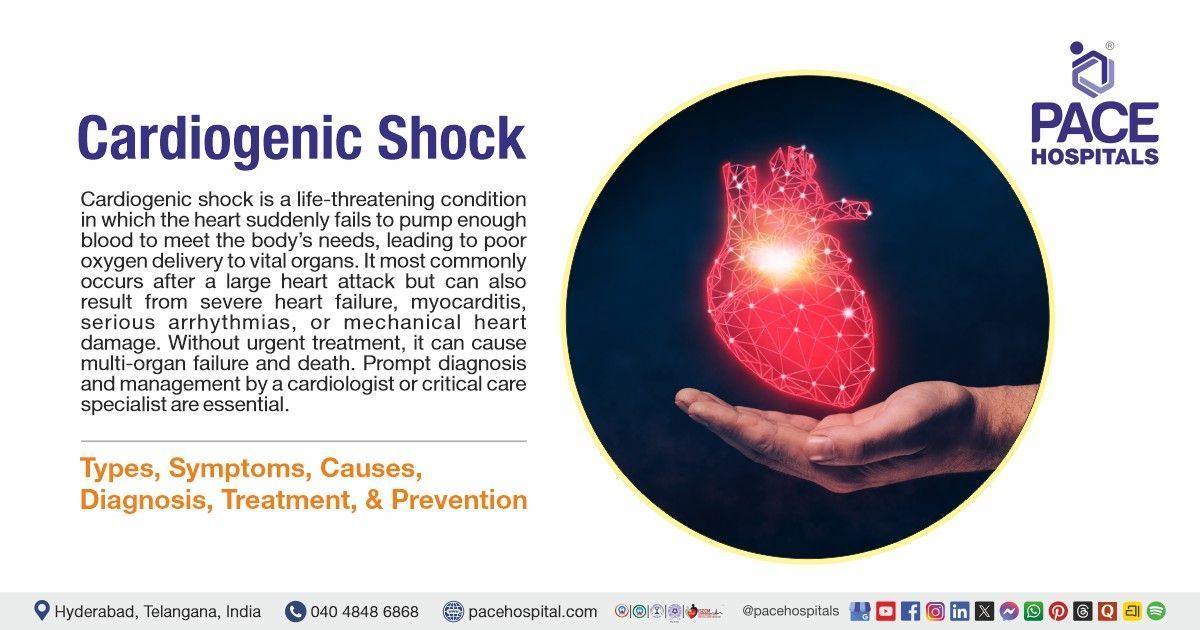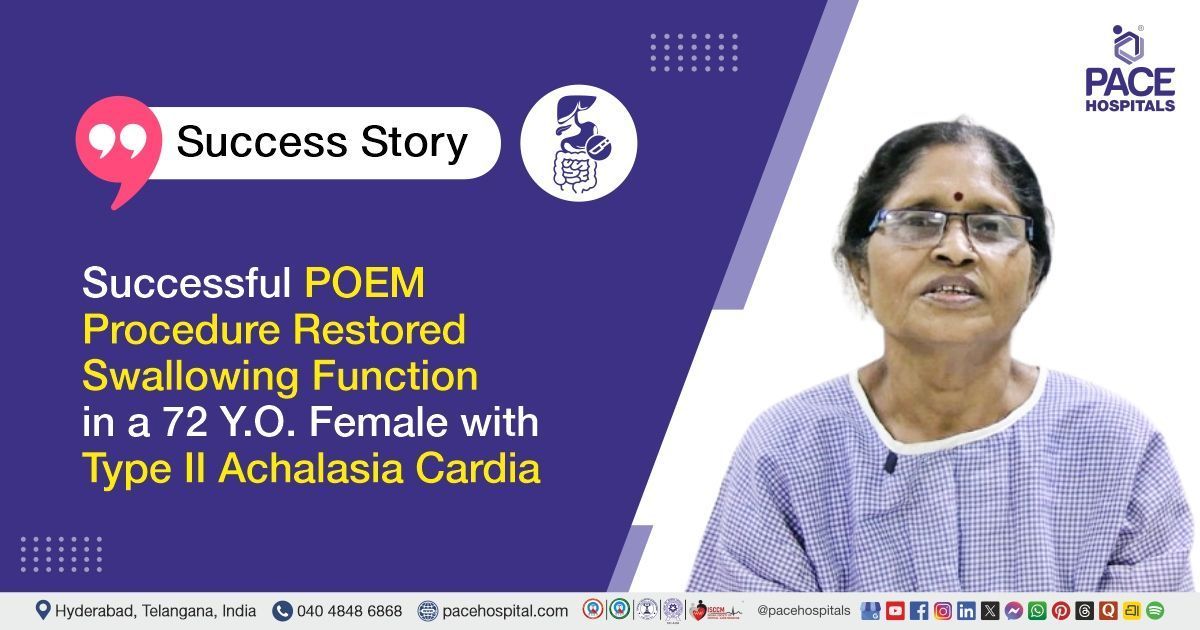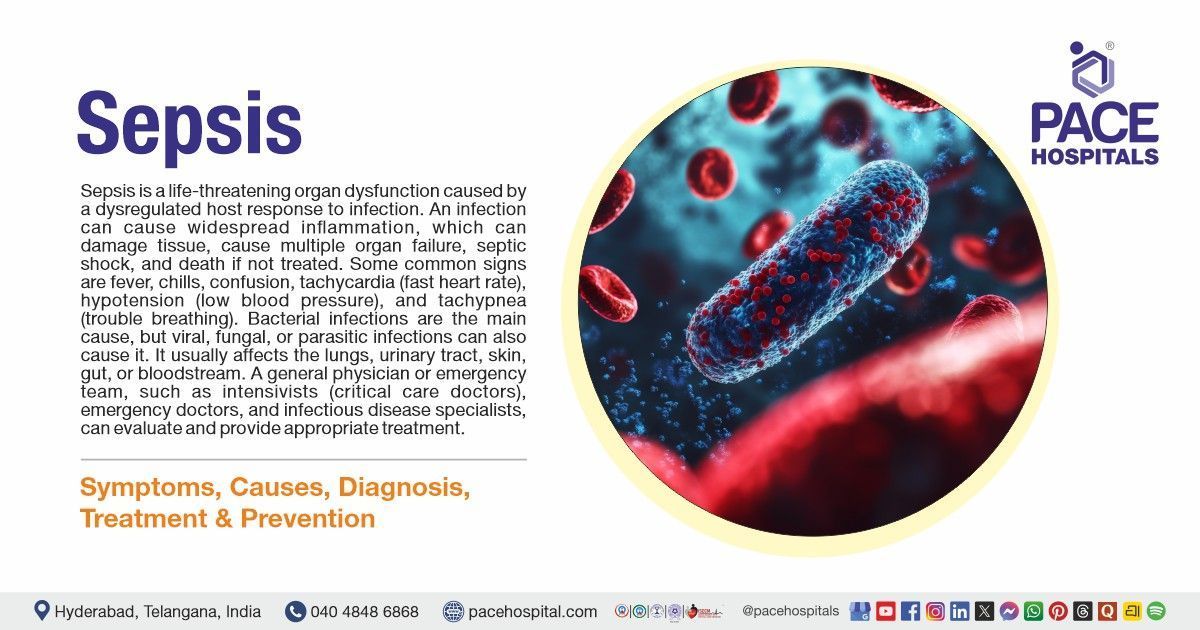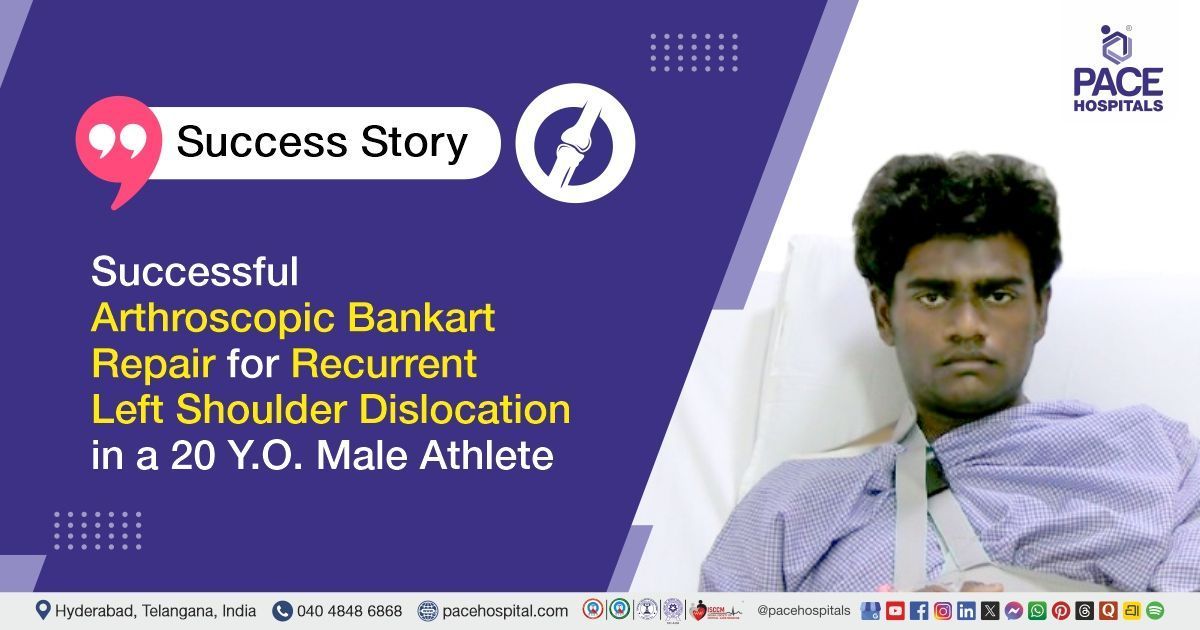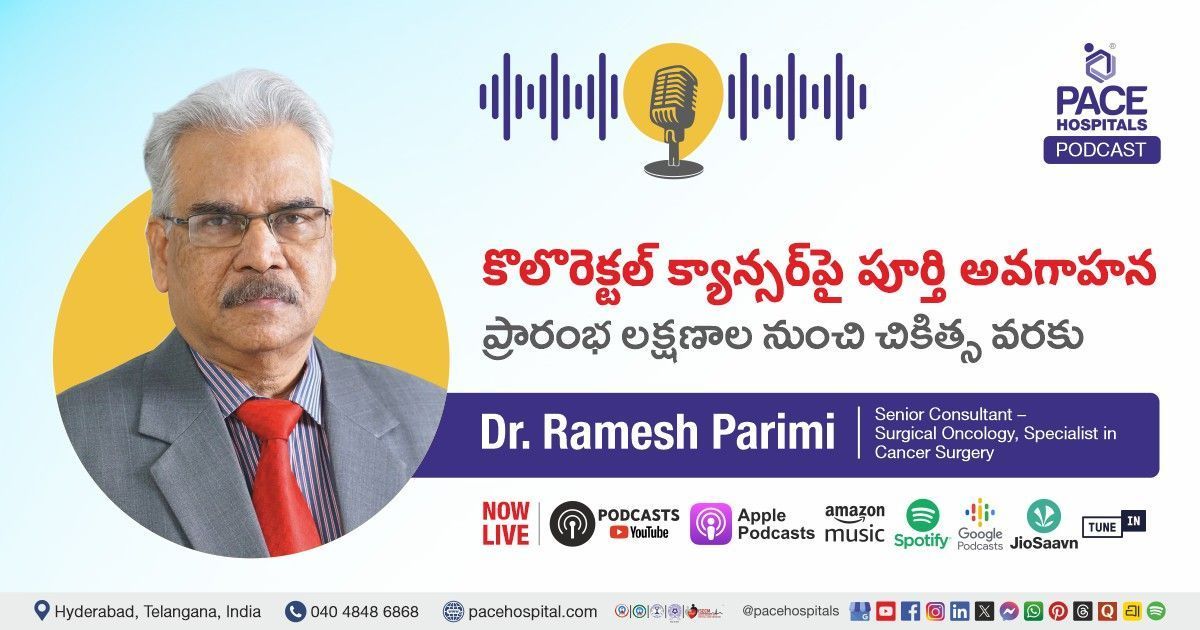Living donor liver transplant for decompensated liver cirrhosis & hepatic encephalopathy | Case study
Pace Hospitals
Liver Transplantation team at PACE Hospitals carried out successful Living Donor Liver Transplantation (LDLT) for a 47-year-old male patient with decompensated liver cirrhosis (presence of complications like jaundice, ascites, variceal bleeding, hepatic encephalopathy).
Medical History
A 47-year-old male patient (Ravi) with a history of
ascites (distended abdomen) associated with hepatorenal syndrome and a known case of chronic liver disease was admitted to the hospital for further management. His complaints also included hepatic encephalopathy (brain dysfunction due to liver insufficiency).
Diagnosis
Upon being admitted to PACE Hospitals, Hitech City, Hyderabad and undergoing necessary investigations, the patient was diagnosed with Decompensated Chronic Liver Failure with Ascites and Heptorenal Syndrome.
Based on the confirmed diagnosis, the patient was advised to undergo Chronic Liver Failure Treatment in Hyderabad, India, under the specialized care of the Liver Transplant Department.
The decompensated liver in chronic liver failure disease could be termed as a final progression of various liver related diseases characterized by abnormal structure and function of the liver. Ascites (fluid accumulation in the abdomen) is a common symptom seen with impaired liver function associated with impaired renal function.
Water retention seen with impaired renal function can also be enhanced with dilutional hyponatremia (reduced levels of sodium in blood) resulting in a persistently elevated levels of vasopressin (enzyme which reduces water excretion by increasing water reabsorption in the collecting ducts in nephrons in kidneys). The Model for End-Stage Liver Disease (MELD) Na score is 24.
Treatment
The team of liver transplant doctors - Dr. CH Madhusudhan, Dr. Govind Verma and Dr. Suresh Kumar and the internal medicine consultant general physician asserted that a liver transplant was the only way to save the patient.
Following the confirmed diagnosis, the patient was scheduled for a living donor liver transplant in Hyderabad at PACE Hospitals, under the expert supervision of Liver transplant surgeon Dr. CH Madhusudhan.
Consequently, the patient was put on multiple life-saving supports; efforts were made to obtain a liver from donors after the party was counselled about the urgency of a liver transplant. The wife of the patient came forward wilfully to donate a portion of her liver. The blood group was tested and was found that both share similar blood group (B+).
Both the patient, the donor, and their attendees were counselled about the liver transplant procedure after obtaining all the clearances, and the patient signing the informed consent.
The patient underwent Living Donor Liver Transplantation (LDLT), receiving a right lobe modified liver graft, and the procedure was performed by the liver transplant surgeons in Hyderabad at PACE Hospitals, without any complications.
The aftermath
The post-operative period was uneventful, and the patient was provided with oxygen support temporarily. With his gradual convalesce, the oxygen support was weaned off and was maintained with regular atmospheric room air.
The liver transplant doctor/specialist observed an elevated output from abdominal drains, which was managed conservatively with albumin infusion.
Surgeons are often faced with the decision of whether to drain the peritoneal cavity and, if so, when. Drainage is usually considered beneficial when there is a well-localized, thick-walled collection of fluid. Drains are usually employed to eradicate any infected or inflammatory tissue fluids, but sometimes they get occluded or be situated away from the postoperative dilemma. Albumin is a protein found in human blood. It constitutes approximately one half of the proteins in the plasma and accounts for about 70% of its oncotic pressure.
It plays, therefore, a pivotal role in modulating the distribution of fluid among body compartments. In cases of increased abdominal drain, albumin may be provided to reduce it.
In the initial days following surgery, intravenous fluids were given initially and monitored regularly with urine output and renal function test reports. All the necessary medicines, immunosuppressives, antibiotics, antifungals, proton pump inhibitors, multivitamins, antiemetics, analgesics, antipyretics & other supportive care were given along with the counselling.
Gradually an improvement in liver function is concurred as evidenced by improved liver enzymes due to which immunosuppression drugs were changed and doses adjusted corresponding to the
liver function test reports. Once the patient achieved hemodynamic stabilization, he was discharged with the necessary medications and advice for follow-up.
Conclusion
This case highlights the successful outcome of Living Donor Liver Transplantation (LDLT) using a left lateral segment graft, emphasizing the excellence of Decompensated Chronic Liver Failure treatment in Hyderabad, India. Along with the effective management of complex liver conditions such as ascites and hepatorenal syndrome.
The changing perception towards liver cirrhosis
Most chronic liver diseases are notoriously asymptomatic until cirrhosis with clinical decompensation occurs. Decompensating events include ascites (condition of fluid collection within the abdomen), sepsis (infection triggering a chain reaction throughout the body), variceal bleeding (abnormally dilated veins causing bleeding), encephalopathy (brain dysfunction due to liver cirrhosis) and non-obstructive jaundice (excess bilirubin circulating in the blood stream). Imaging by ultrasonography, CT, or MRI of an irregular and nodular liver together with impaired liver synthetic function is sufficient for the diagnosis of cirrhosis.
Hepatologists longer regard cirrhosis as a terminal disease, and the concept of a dynamic process is increasingly accepted.
Clinically, cirrhosis has been regarded as an end-stage disease that invariably leads to death, unless liver transplantation is done, and the only preventive strategies have been screening for oesophageal varices and hepatocellular carcinoma (liver cancer). Lately, this perception has been challenged, because 1-year mortality in cirrhosis varies widely from 1-57%, depending on the occurrence of clinical decompensating events. Histopathologists have proposed that the histological term cirrhosis should be substituted by advanced liver disease, to underline the dynamic processes and variable prognosis of the disorder.
A prognostic clinical subclassification with four distinct stages has been proposed with substantially differing likelihoods of mortality:
- Stage 1 (compensated with no oesophageal varices) has an estimated mortality of 1% per year, and
- Stage 2 (compensated with varices) estimated mortality of 3.4% per year.
- Stage 3 (decompensated with ascites) estimated mortality of 20% per year and
- Stage 4 (decompensated with gastrointestinal bleeding) have annual mortality rate of 57%.
- Stage 5 (infections and renal failure) with 67% 1-year mortality.
Hepatic encephalopathy is one of the important neuropsychiatric complications of liver cirrhosis in which the patients could experience confusion, altered behaviour, disorientation, and coma with disease progression.
An important cause of recurrent admissions of liver cirrhotic patients, hepatic encephalopathy is associated with a significant elevation in the mortality among those awaiting liver transplantation.
Share on
Request an appointment
Fill in the appointment form or call us instantly to book a confirmed appointment with our super specialist at 04048486868

